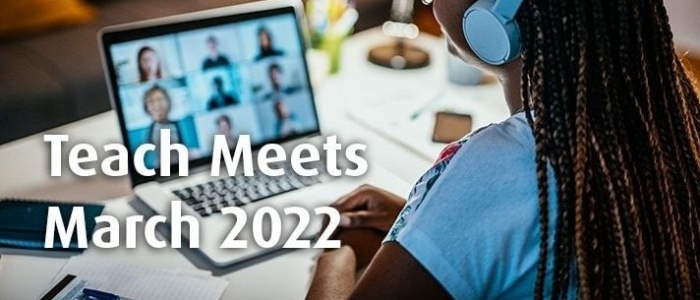2022 Music Education Teach Meets

2022 Music Education Teach Meets
2022 Music Education Teach Meets
- Primary and early years: 7 March 2022, 4-5.30pm
- Secondary: 8 March 2022, 4-5.30pm
Join the discussion
Do you want to hear from teachers working across a range of music education settings? Do you want to join in the discussion and share about your music education work that will interest and inspire others?
Once again, The Incorporated Society of Musicians are facilitating online Music Education Teach Meets. These free events are for teachers and led by teachers, embedding joint practice development and collaboration at the heart of your work. We will hear 10-minute presentations from colleagues, which will offer new perspectives, ideas and a chance to engage in rich discussions.
They are inclusive and open to all whether you work in a classroom or a music hub, if you are an instrumental or vocal music educator, or if you work in another capacity within music education, no matter what your role is or what stage of your career you are at.
To find out more and sign up for free click here.
Primary and early years presentations include:
- Integrating Education for Sustainable Development (ESD) into the music curriculum. Following on from the themes that were headline news in the run-up to COP26 last November, this presentation will be exploring ways in which music education can help children develop an understanding of the United Nations’ Sustainable Development Goals and nurture the key skills seen as necessary for future sustainability. This will include looking at increasing learner agency on matters such as social justice through the growth of global citizenship, and examples of such work taking place in primary music at The Premier Academy in Bletchley, Milton Keynes.
- Looking Beyond Adult-Led Music in the Early Years. Katie (aka Kathryn) Neilson will speak about her MA research which considered young children’s musical behaviours in everyday life and teachers/EYPs responses to these behaviours. Her research specifically asked what happened when EYP/teacher responses to these behaviours were musical. Katie’s findings revealed barriers to recognition of musical behaviours, as well as valuable insights into the benefits of adults’ musical responses for young children.
- I’ve got rhythm. This presentation will look at the resource ‘I’ve got rhythm’. The resource shows a progression towards reading standard notation and is a fun and engaging way for children to learn how to read a series of rhythm patterns starting through shapes and playing using body percussion which leads on to using drumsticks for chair drumming activities.
- Developing a Knowledge Rich Skills Based Music Curriculum. Here we will discuss how you can integrate a knowledge rich approach into the practical subject of music without compromising on skills development.
Secondary presentations include:
- Extracurricular recovery
- Rhythm and Pulse and how tasks like chair drumming can be both engaging and COVID friendly. This presentation discusses how engaging tasks such as chair drumming impact knowledge on rhythm and pulse, and even the drum kit, for Year 7’s. The presenter will discuss strategies on how to deliver these practical tasks, along with differentiated methods and in a COVID secure setting.
- Tuning a curriculum project – getting the best out of your ideas. This presentation will explain the purpose of a curriculum tuning process, what it involves, and how it can support and deepen your planning process in order to maximize the learning opportunities of your curriculum. A tuning protocol template will also be shared to use within your own department, school or education setting.
- Every Copy Counts Composing Resources. As part of the new Every Copy Counts campaign, PMLL has developed a suite of resources for teachers in the primary and secondary phases, highlighting practices in composing. This suite of resources includes suggestions for the use of technology, exposes diverse composers, provides a gamified approach to composing at KS2 and an amazing broad suite of composing starting points, ‘The Composing Cube’. This presentation will introduce PMLL’s Every Copy Counts campaign, which seeks to ensure that by logging their copying data of sheet and digital music in schools, royalty distribution to composers is fair and equitable.